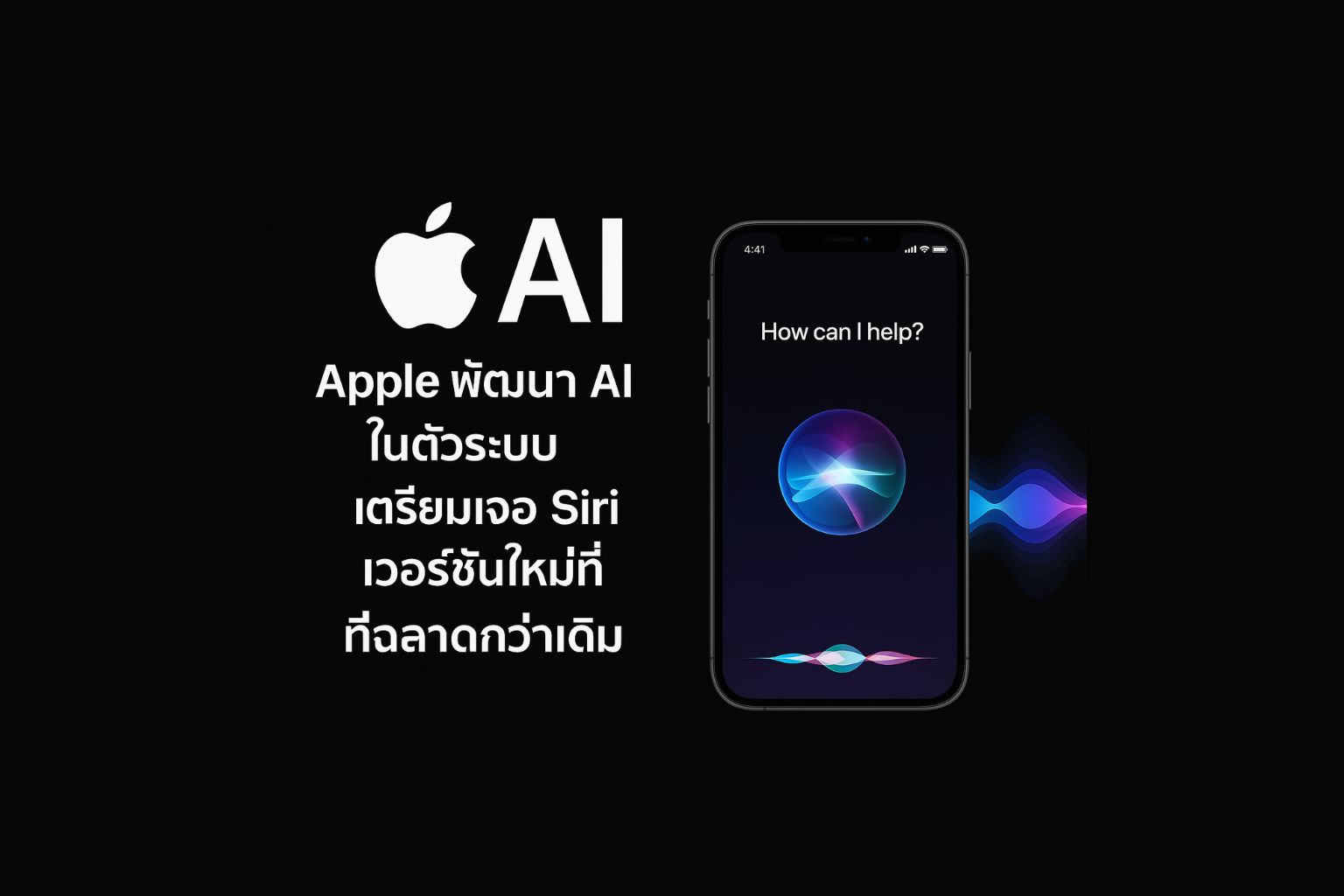Apple is developing a new Artificial Intelligence (AI) strategy that prioritizes on-device processing, supplemented by a private cloud infrastructure. This initiative aims to enhance the capabilities of the Siri virtual assistant and other features in the next generation of its operating systems.
Core AI Technology Components
- On-Device AI
- Principle: The majority of AI-related data and command processing will occur directly on the device's chip (iPhone, iPad, Mac).
- Advantages: This approach enhances user privacy, reduces latency, and enables some functions to operate without an internet connection.
- Siri with Generative AI
- Capabilities: Siri is expected to be upgraded with Generative AI technology, enabling it to:
- Understand more complex and natural language commands.
- Perform cross-application actions (e.g., executing commands that involve multiple apps).
- Learn from user behavior to provide personalized suggestions.
- Capabilities: Siri is expected to be upgraded with Generative AI technology, enabling it to:
- Private Cloud Compute
- Principle: For tasks requiring more intensive computational power, data will be sent to Apple's servers for processing in a secure, anonymized environment.
- Advantages: Apple has stated that no user profiles will be created and no data will be stored long-term.
Expected AI-Powered Features
- Automated Summarization: For emails, notifications, and messages.
- Scheduling Assistance: Suggesting appointment times based on conversational context.
- Writing Assistance: Generating drafts for emails or messages based on prompts.
Conclusion
Apple's new AI strategy utilizes a hybrid model of on-device and private cloud processing to deliver a more intelligent user experience while maintaining a strong focus on user privacy. Further details are expected to be announced at WWDC 2025 and integrated into iOS 19.

